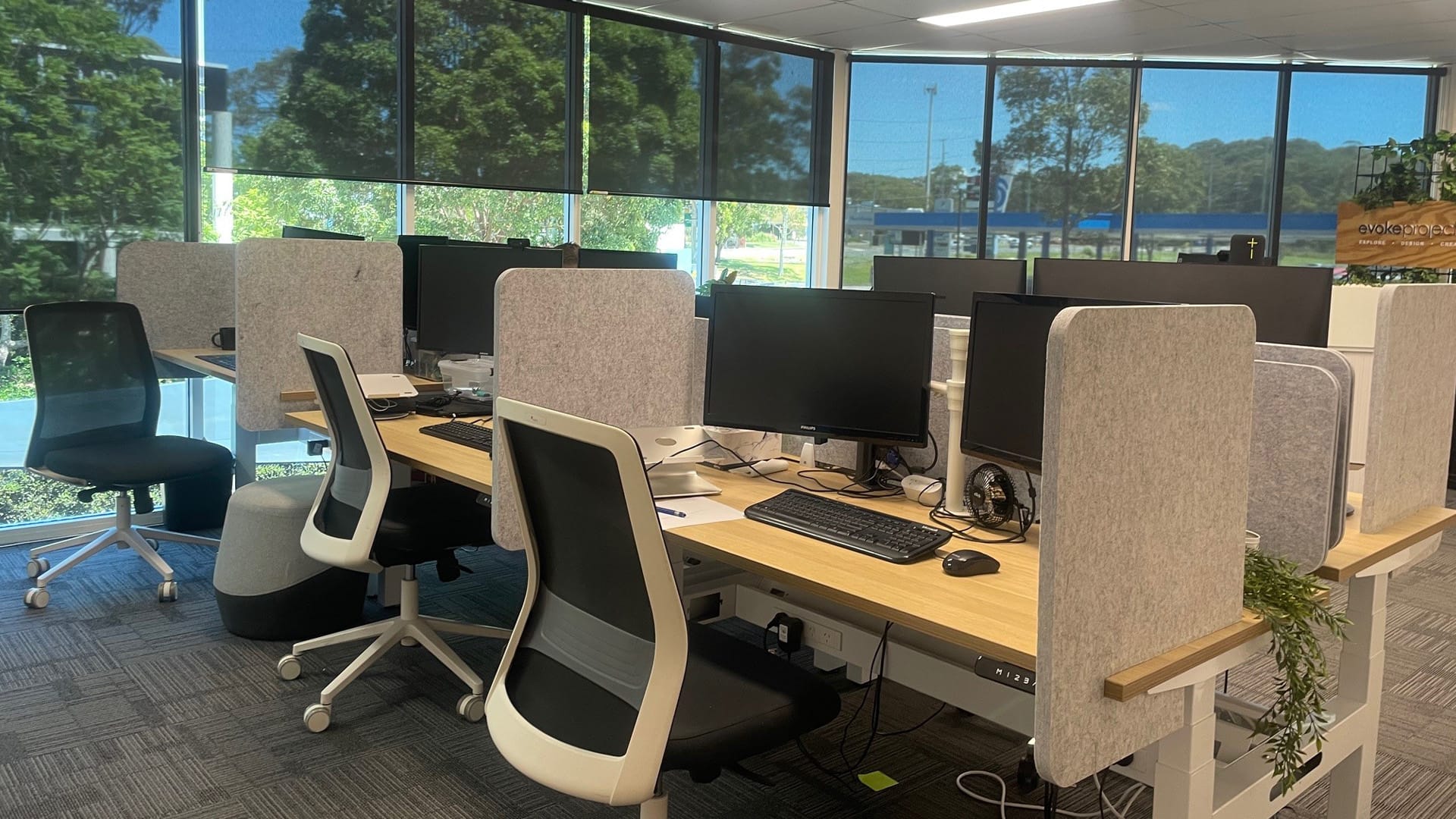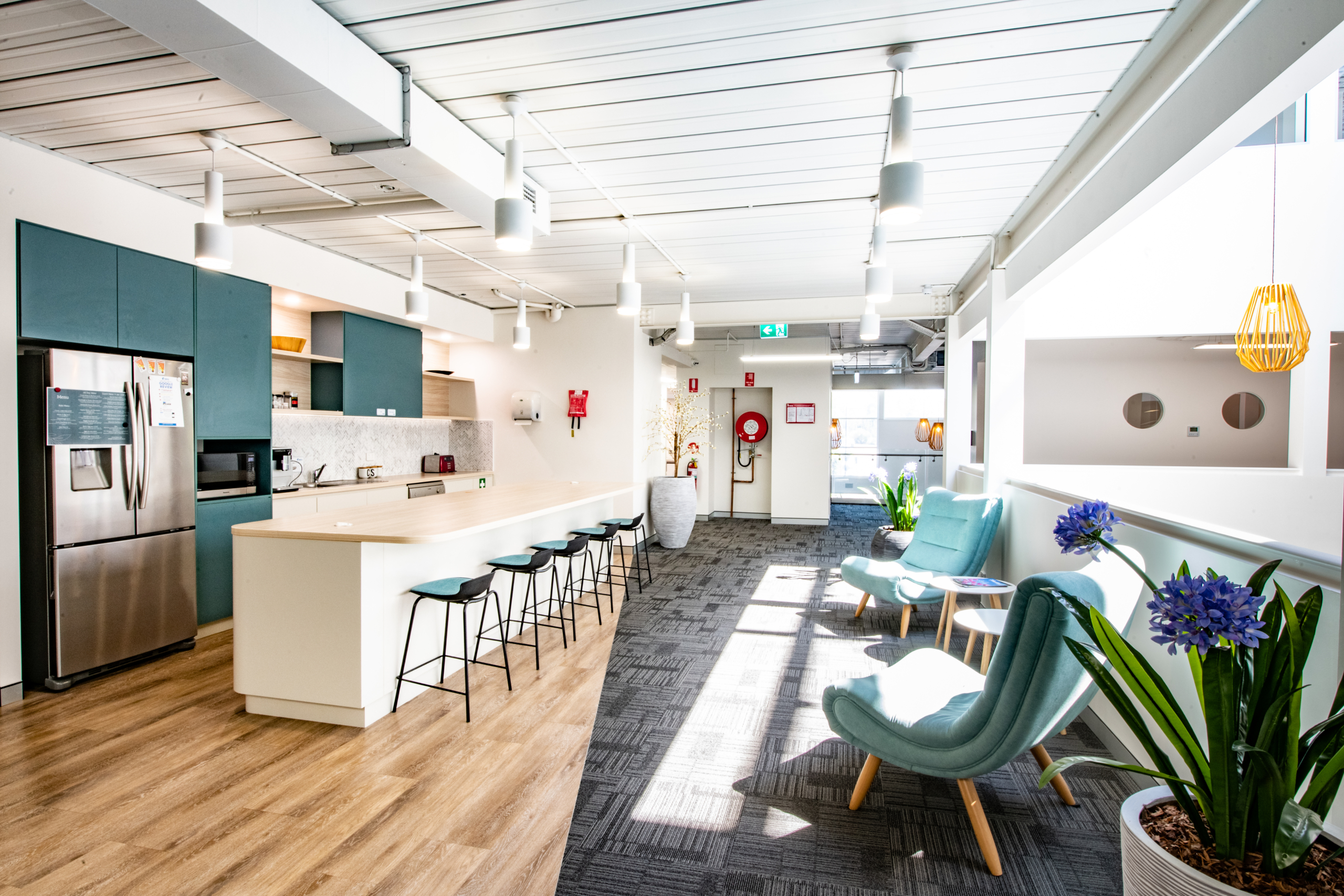
With a growing trend against telecommuting in favour of bringing employees together, shared office spaces appear to be gaining popularity among businesses large and small. Along with overhead savings, businesses based in shared office spaces could be enjoying greater productivity and high employee engagement. Research suggests employees thrive in shared working or cowork spaces, and here are some reasons why.
1. Positive energy and wellness benefits
A shared office environment cultivates a positive energy and mindset that can only come from interacting with fellow workers. Compared to working from home or remotely where there may be numerous distractions (television, children, coffee shop noise), everyone within a shared office space is there for the same purpose – to get work done. Numerous studies have highlighted the benefits of coworking spaces, such as improved focus and confidence, as well as drastic improvements to work engagement and motivation.
Shared office spaces are designed with the worker in mind, and therefore have facilities that cater to both the professional and personal needs of employees. Facilities such as a members gym, childcare and an onsite medical centre are all wellness initiatives that can positively contribute to employees health. In fact, studies show that a coworking environment can actually make employees feel healthier than they did working in a traditional office setting.
2. Shared office spaces reduce isolation
Although remote working has its benefits such as flexible hours and no commute, remote workers do in fact face challenges such as feelings of loneliness and isolation. Remote workers lack the ‘human’ element of work that being in an office space provides. Loneliness is much more than just a social problem – it’s also considered a health issue, “associated with a reduction in lifespan similar to that caused by smoking 15 cigarettes a day”.
According to research by Harvard Business Review, shared office spaces that allow remote workers, freelancers and startups to “work alone together” can substantially reduce the loneliness and isolation associated with remote work, whilst also increasing feelings of happiness. By creating communities and subsequently reducing isolation and loneliness, shared office spaces benefit both employers and workers due to increased levels of work engagement, productivity, and happiness.
3. Community benefits
Community is another reason employees thrive in shared office settings. Depending on your personal situation, working from home can be advantageous, but as mentioned above it can leave you feeling isolated and/or subject to distractions that can affect your ability to perform. If working from home is not feasible but you don’t want to commit to a commercial lease, a shared office space could be the solution.
Researchers at the University of Michigan found that coworking members tend to “thrive” more than employees working remotely. This is in part due to the community features of coworking spaces, which allow people to interact and socialise with other members. Another study reports that the primary reason most people opt for shared office spaces is for the social interactions.
The large network of connections, potential partners, and potential customers may be another reason why coworking locations are in such high demand. In contrast to a standalone, nondescript office, shared office spaces often come with a unique vibe, offering businesses and entrepreneurs a range of amenities and opportunities to network with other businesses.
The human element of shared office spaces could boost morale, engagement, and productivity in team members. While shared offices offer looser boundaries, businesses and their employees have discretion as to how much of this community experience they want to have. For example, you can use zones and workstation barriers to create your standalone space without isolating your business from the others in the shared work setting.
4. Job control
Employers of businesses based in coworking spaces can thrive because they feel like they have more job control. These shared office environments are typically accessible at all hours of the day, throughout the week. Employees might be empowered to work longer when they have a project deadline looming, and they might be able to take a longer lunch break for a workout session at the gym when things are less hectic.
Employees can choose the zone they want to work in to suit the tasks they’re currently doing. For example, if they need to collaborate, they can book the meeting room with the team. If they need a few hours of quiet work to be done, they can use the silent areas of the shared office space.
The shared office environment offers the opportunity for job control and autonomy with enough supportive structure – through zones, community, and management policies – so employees still have the structures they need to thrive.
5. Flow-on benefits helping employees thrive
It’s worth noting some of the flow-on or associated benefits that help employees thrive in shared office spaces.
- Connection and commitment – The large network of potentially complementary businesses in your shared office space could enhance the sense of connection with the workplace. Your employees can feel more engaged and connected, and they can feel a stronger sense of commitment to their work as a result.
- Flexibility – As mentioned above, shared office spaces can give employees more job control. The freedom to change around their immediate workspaces according to the type of work they’re doing goes also leads flexibility. Flexibility can be a driver of dynamism, creativity, and productivity at work.
- Communication and collaboration benefits – In contrast to rigid work environments where staff have fixed offices and workstations, the flexible boundaries associated with shared office spaces can support reduced barriers to communication and collaboration. For high-performing teams, this can help them thrive.
While shared office spaces started with freelancers, solopreneurs, and startups, they’re increasingly relevant for larger organisations. The evidence suggests employees do thrive in these environments, which is why every business should consider basing themselves in a shared office space. Giving your employees more choice, flexibility, and control, along with access to a diverse community and great facilities, could be the best productivity enhancement strategy for your organisation.
NexusHub is a leading provider providing cost-effective yet premium office spaces for small businesses. Whether you’re a startup, small business, or rapidly expanding organisation, we have the right office solution to help your team thrive. Explore our website for more information or contact us today for a discussion.





